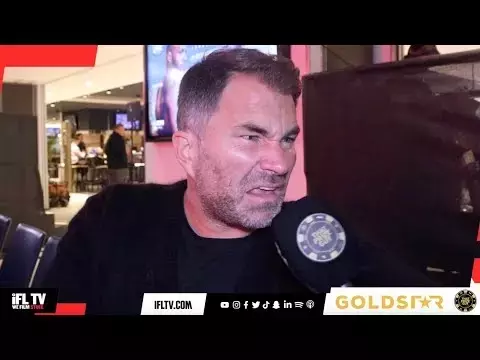As anticipation builds for the highly-anticipated middleweight clash at Tottenham Hotspur Stadium, promoter Eddie Hearn dismisses the notion that Chris Eubank Jr. might retire if defeated by Conor Benn. The fight, set to air on DAZN PPV, promises substantial financial rewards for both athletes, cementing their status as two of the most bankable names in British boxing today. Despite criticisms about their achievements and comparisons to global stars, Hearn insists that monetary motivations will keep Eubank Jr. in the ring long after this Saturday's bout concludes.
Unyielding Ambition Powers the Ring
The world of professional sports often celebrates talent and dedication, but few arenas match boxing when it comes to rewarding star power with lucrative contracts. In the case of Chris Eubank Jr., his motivation extends beyond mere passion for the sport; financial incentives loom large over every decision he makes. As Hearn pointedly notes, Eubank Jr.'s career trajectory has consistently prioritized earnings potential over championship pursuits. This pragmatic approach reflects a broader trend in modern boxing, where fighters strategically align themselves with high-profile matchups rather than risk everything in title fights.Conor Benn shares similar ambitions, driven not only by familial legacy but also by the immense wealth such rivalries generate. Their combined ability to draw audiences across multiple platforms ensures continued relevance within an increasingly competitive market. Even if one fighter suffers a decisive defeat, the allure of another payday remains irresistible. Such dynamics underscore how deeply entrenched financial considerations are in shaping contemporary boxing narratives.Monetary Magnitude in Modern Boxing
In no other field does mediocrity command such astronomical sums as seen here. Both Eubank Jr. and Benn stand poised to pocket approximately $10 million each from Saturday’s event alone—an astonishing figure considering neither athlete boasts a world championship pedigree nor appears destined to attain one anytime soon. Yet, these figures pale compared to what awaits them should they secure a rematch. Estimates suggest identical payouts await, reinforcing just how lucrative domestic rivalries have become in today's boxing landscape.This phenomenon raises intriguing questions about value versus achievement. While some critics decry the emphasis placed upon spectacle over substance, others argue that such arrangements reflect shifting audience preferences. Fans increasingly prioritize drama-filled encounters over technically superior displays, driving demand for confrontations like Eubank Jr. vs Benn. Regardless of perspective, there's no denying the staggering sums involved highlight the evolving economics underpinning professional pugilism.Champions Versus Contenders: A Tale of Two Tiers
When juxtaposed against globally recognized titans such as Janibek Alimkhanuly or Saul 'Canelo' Alvarez, the disparity becomes glaringly apparent. These elite competitors routinely engage in grueling contests against fellow top-tier adversaries while commanding commensurate compensation packages. By contrast, placing either Eubank Jr. or Benn into such elevated company would likely result in lopsided outcomes favoring established champions.Yet, this doesn't diminish the significance of their respective contributions to UK boxing culture. For many local fans, witnessing homegrown talents battle it out holds particular appeal. Moreover, the intense rivalry between these second-generation fighters taps into longstanding traditions of family feuds enriching the sport's storied history. Thus, despite critiques regarding comparative skill levels, their ongoing saga resonates deeply among certain demographics.Economic Imperatives Shape Future Encounters
Hearn's insights reveal much about the inner workings governing decisions made by professional athletes today. Far from being discouraged by potential setbacks, Eubank Jr. views even catastrophic losses through a lens colored by future opportunities. His willingness to embrace rematches regardless of prior results underscores the overriding importance attached to maintaining revenue streams. Similarly, Benn exhibits comparable resolve, recognizing the invaluable platform provided by competing against familiar foes.Ultimately, these scenarios exemplify how economic realities shape athletic careers perhaps more profoundly now than ever before. With broadcasting deals reaching unprecedented heights and fanbases expanding globally thanks to digital media, the stakes continue rising exponentially. Consequently, fighters must navigate complex landscapes balancing personal aspirations against commercial imperatives—all while striving to leave lasting legacies within their chosen fields.You May Like




